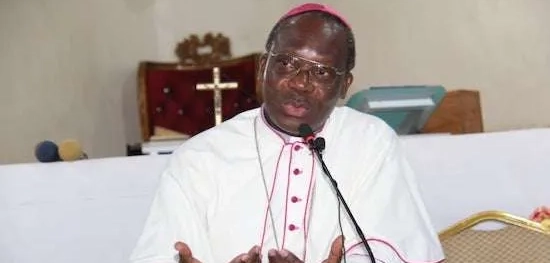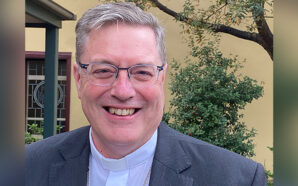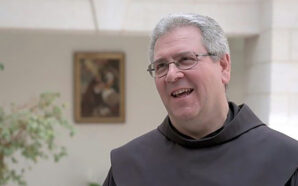Catholics and most other mainline Christians are currently observing the “Season of Creation”, a five-week initiative that continues until the October 4th feast of St. Francis of Assisi, the patron of caring for the environment.
The season began on September 1st, which Pope Francis decided in 2015 would henceforth be the annual World Day of Prayer for the Care of Creation. The pope has called on Catholics and all people of good will to take threats to our natural world – such as climate change and global warming – seriously.
Archbishop Roger Houngbédji of Cotonou (Benin) certainly has. He told La Croix Africa’s Juste Hlannon about the motivations behind his commitment, noting that religious leaders do more to help the environmental cause in Africa.
La Croix Africa: Why have you invested yourself, for several months, in the field of protection of the environment, of creation?
Roger Houngbédji: It’s possible to find in the values of fraternity and responsibility that have always preoccupied me a terrain favorable to welcoming the appeals launched by the universal Church for the care of the common home, but my personal commitment to environmental protection is essentially an ecclesial act.
In 2015, Pope Francis promulgated the encyclical letter Laudato si’, which profoundly addresses the issue of safeguarding our common home, the Earth, inviting us, following in the footsteps of St. Francis of Assisi, to consider the earth as a sister with whom we share existence and as a beautiful mother who always welcomes us with open arms. I found in these exhortations very pertinent calls for us to work together to protect the environment.
Since then, in taking action to protect the environment, and in trying to generate the same impetus within the Church-family of God in Cotonou, I believe I am making acts of faith, hope and charity. Those who are concerned with environmental protection are usually inspired, among other things, by the principle: think globally act locally. For my part, I’m certain that our local action will bear lasting fruit only if we commit ourselves to it with Christ, who chose us and established us (see Jn 15, 16), by allowing us to be guided by his Spirit.
Why, in your opinion, should the Church in Africa today commit itself to safeguarding creation?
There are several reasons why the Church in Africa should be committed to safeguarding creation.
The first is that the Church in Africa is a part of the universal Church, and through the exhortations of the popes, it is also launching calls to think about the safeguarding of creation and to act concretely in this direction. When Pope Benedict XVI lamented, for example, the exploitative programs that are polluting the environment and causing unprecedented desertification in Africa (Africae munus n°80), he assumed, in his luminous pen, the heartfelt cry of the bishops who took part in the special synod for Africa from October 4 to 25, 2009. The Church in Africa prays, thinks and appeals; it must also continue to act concretely fr the good of all.
The second motivation stems from the fact that, like all individual churches, the Church in Africa has a vocation to be the salt of the earth and the light of the world; it exists to awaken the conscience of the people and to act as a locomotive that drives society. Since the question of development is today a primary concern for African peoples, the Church in Africa must play its part by enlightening consciences so that this construction of the earthly city is carried out with a view to building, first and foremost, the City of God. And this will not happen if we disregard important concerns such as environmental protection.
The third reason is practical. The Church in Africa has great potential for mobilization, organization and implementation. It can reach all social and professional strata. These potentialities represent talents that need to be brought to fruition.
What role can religious leaders in Africa play alongside governments to bring about a change in people’s attitudes towards creation?
When we observe certain behaviors and analyze certain mentalities that inspire a large fringe of society, we can be tempted to despair. In the southern part of Benin, for example, many people think that what belongs to everyone doesn’t necessarily need to be looked after.
You can misuse it, you can abuse it at will. This approach is diametrically opposed to any concern for the environment. In such a context, the role of religious leaders is, first and foremost, to maintain and revive hope, especially as regards the possibility of changing mentalities and acting profoundly to bring about a radical change in our behavior. In concrete terms, it’s a question of being a witness to (Christian) hope.
The role of religious leaders is then to take initiatives, however small. With this in mind, the Green Church Program is one of the main projects of the Cotonou archdiocese’s second strategic pastoral action plan (2023-2030). The aim of this project is to help care for our shared heritage, the earth, through education in eco-citizenship, environmental preservation and the fight against climate change.
Finally, the role of a leader is essentially to be the servant of all, the slave of all (cf. Mk 10, 43-44). It would be extraordinarily marvelous if all religious leaders, without abandoning the primordial cause of the salvation of souls, were to become the first servants of this noble cause. But let’s not forget: in the footsteps of Christ, we are all, in reality, co-responsible!
Thanks to La Croix International.








